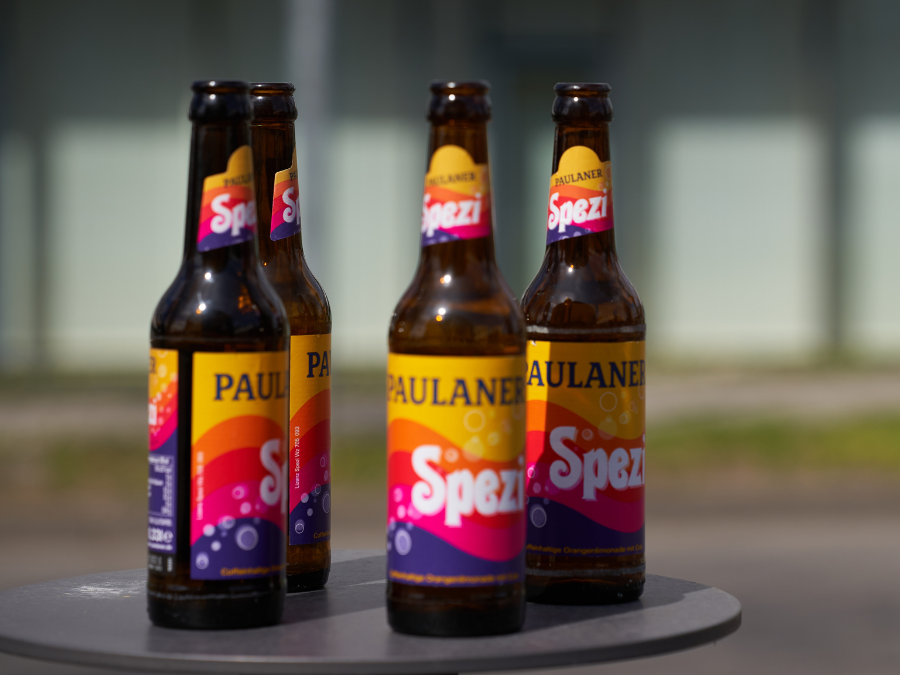
German Paulaner Brauerei can keep the name Spezi for its cola and orange carbonated soft drink (CSD), a judge ruled yesterday.
Fellow brewer Brauhaus Riegele, which also produces a drink called Spezi, took the Paulaner Group to court over the name, arguing that it invented the drink and Munich-based Paulaner must pay a licence fee.
But an agreement made between the two breweries in 1974 means Paulaner can keep producing its drink under the name “Paulaner Spezi”, the District Court of Munich ruled. Riegele had tried to back out of the agreement last year.
Dr Anne-Kristin Fricke, presiding judge at the District Court of Munich, said there was “no reason” for Riegele to terminate the 1974 agreement, adding that “(both) parties would have predictably made significant investments in their respective brandings subsequent to this agreement, with reliance on its existence”.
“The 1974 agreement was intended to finally settle existing disputes between the parties. In reliance on the final settlement, the plaintiff made significant investments in building its brand,” said Fricke.
Paulaner told Just Drinks that there is room for both Spezi products in the market as each has a distinctive style.

US Tariffs are shifting - will you react or anticipate?
Don’t let policy changes catch you off guard. Stay proactive with real-time data and expert analysis.
By GlobalDataA spokesperson said: “We are very pleased that the court has followed our reasoning. Both breweries have been selling with their respective Spezi for almost 50 years by now and each version has its own taste, style and fan base. Thus, we are convinced that both, Paulaner Spezi as well as Spezi by Riegele, should be present in the market – and of course we continue to be open to further talks with Riegele Brewery.”
In a statement following the ruling Riegele said it will “decide on further steps” regarding shared brand building for Spezi.
It said it was “incomprehensible” that Paulaner benefitted from the Spezi brand “without sharing in the costs of brand defence and brand development”.
“The success of the Spezi brand is based on the efforts and investments made by the Spezi license family since 1956,” a spokesperson said. “We will examine the reasoning of the court and then decide on further steps.
“We also feel that we have a responsibility towards our Spezi partners, all of which are Bavarian family breweries. With them we made the brand big.”
Riegele added: “It is important to emphasize that it is still not the goal to drive Paulaner Spezi out of the market, but to persuade Paulaner to share the costs fairly within the framework of an appropriate license fee.”
Origins of the dispute
The 1974 deal was between Riegele and then-Paulaner Salvator Thomas-Bräu-AG. At the time, Riegele claims it agreed to allow Paulaner to market and sell its Paulaner Spezi in return for a one-time payment. The deal contained the condition Paulaner Spezi had a different logo to Riegele’s version of the drink.
In May last year, however, Riegele said it wished to terminate the agreement and the brewery demanded fees from Paulaner like those it charges other regional brewers to bottle Spezi. The amount in dispute was set at EUR10m (US$9.7m).
Paulaner argued that the 1974 agreement could not be terminated as it was a one-off demarcation agreement, not an ongoing licensing one. It said the agreement was only necessary to differentiate between the two drinks at the time, pointing to the fact Spezi has become a catch-all term for cola-soda mixed drinks in Germany.
At a court hearing in June, Riegele attorney Axel Oldekop said: “It’s not about destroying ‘Paulaner Spezi’ but wanting fair compensation for… investing a lot of money in the brand for years.”
The court judgment yesterday stated: “The plaintiff unquestionably complies with the contractual agreements, and contractual repentance that occurred decades after the conclusion of the agreement as a result of the defendant’s desire to participate in the considerable economic success of the plaintiff does not constitute an important reason in the legal sense .”
Hop-loving brewers need to remember beer drinkers matter – Just Drinks comment



